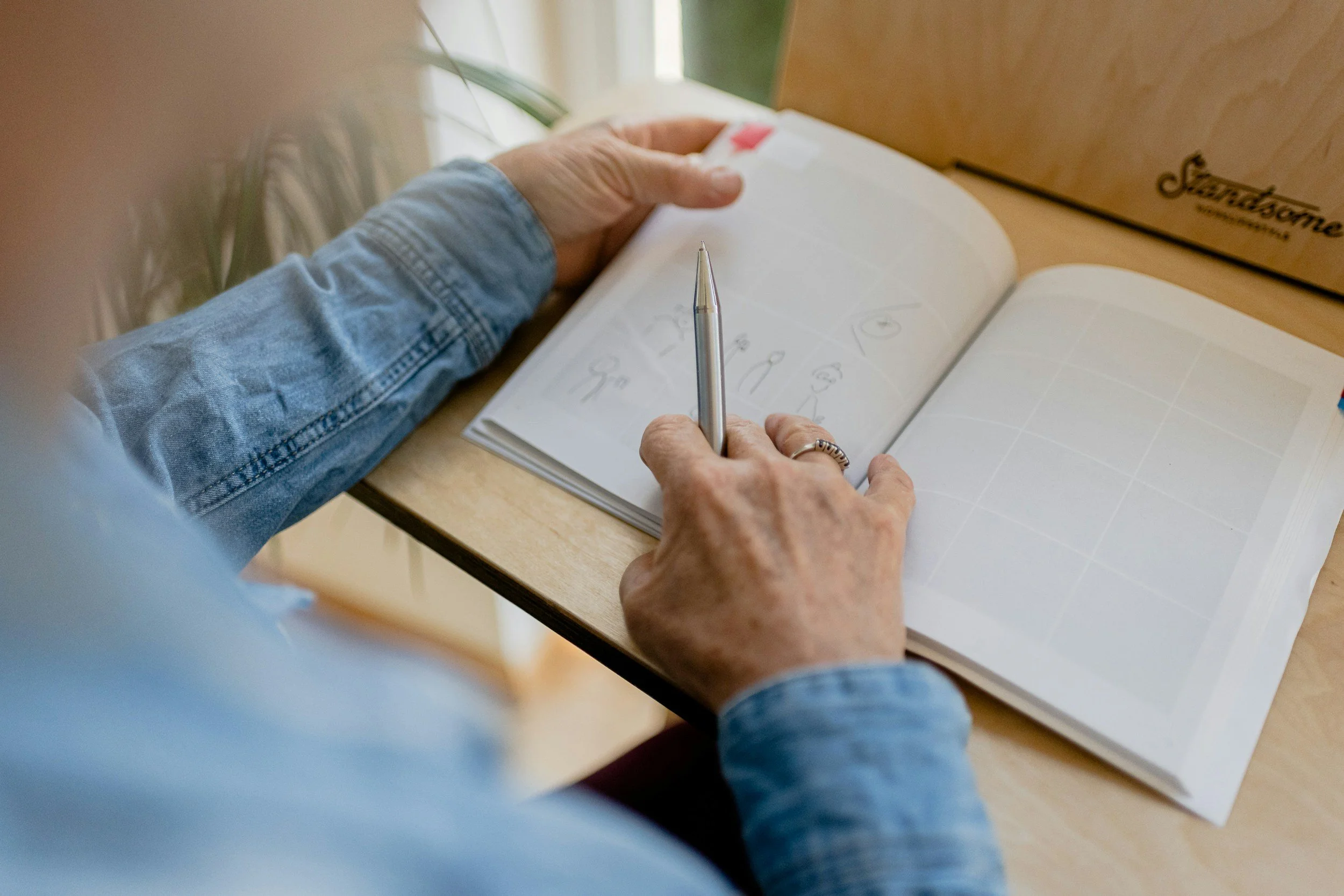The Weight of Decisions: How Daily Choices Impact the Nervous System
Every day, our minds are busy navigating a constant stream of decisions.
According to Cornell University, the average person makes more than 35,000 decisions a day.
These range from the seemingly insignificant—what to wear, what to eat, which foot to step forward with—to the big, life-shaping choices that define our direction. While many of these decisions happen quickly or even unconsciously, the sheer volume places a very real demand on our nervous system. By comparison, our hunter-gatherer ancestors made less than a few hundred decisions a day- and the part of our brain that is responsible for this has barely evolved over the years. When the world moves faster than we do, it’s going to cause some disruption to our biological functioning. That’s a sytemic issue, not a personal one.
Decision Fatigue and the Nervous System
Our nervous system is designed to keep us safe, alert, and responsive to our environment.
Every time we make a decision, even a small one, we use cognitive and emotional energy. When these choices accumulate, our system can experience what is known as decision fatigue. This is the point at which the brain and body become less effective at making thoughtful, balanced decisions because the mental “fuel” required is depleted.
Decision fatigue doesn’t just impact our thinking—it impacts how we feel in our bodies. The nervous system, when taxed, may shift into a state of hyperarousal (fight-or-flight) or hypoarousal (shutdown or freeze).
In hyperarousal, we may feel restless, tense, scattered, or irritable. In hypoarousal, we may feel foggy, disconnected, or simply too tired to care.
Both states reflect the nervous system struggling to keep up with the ongoing load of constant choice-making.
Over time, if left unchecked, this ongoing demand can contribute to stress, burnout, and even physical symptoms such as headaches, muscle tension, or disrupted sleep.
Why Decision-Making Feels So Draining
Not all decisions weigh the same, but even small, repeated choices accumulate in the body. Research shows that our brains treat uncertainty like a threat, which means that even deciding what to have for lunch can subtly activate the stress response. When we face too many options, or when the stakes of our decisions feel high, the nervous system works harder to process and evaluate.
This is why people often describe feeling mentally “exhausted” after a day of constant decision-making, even if nothing physically demanding occurred. The nervous system interprets the load of micro-decisions the same way it would interpret other ongoing stressors—by staying activated and consuming energy reserves.
Supporting the Nervous System by Simplifying Decisions
The good news is that while we can’t eliminate all decisions from our daily lives, we can create practices that reduce the number of choices we need to make and bring more regulation to the nervous system. Here are a few ways to start:
Build routines and rituals
When certain aspects of life are predictable—like what time you wake up, your morning routine, or the clothes you wear on workdays—you remove the need to constantly evaluate and choose. These rhythms free up energy for the decisions that matter most.Reduce options where possible
Instead of keeping every option open, try narrowing choices down to two or three. For example, meal planning with a short list of go-to recipes makes daily food decisions much easier on the nervous system.Take mindful pauses
A few deep breaths, a short walk, or a grounding practice between decisions can reset the nervous system. These small pauses help shift the body out of stress response mode, allowing for clearer, more intentional choices.Set boundaries on decision-heavy tasks
Too many choices at once can overwhelm the system. When possible, spread decisions out over time, or delegate where you can.Practice self-compassion
Not every decision needs to be the “perfect” one. Accepting that “good enough” choices are often sufficient can ease pressure on the nervous system and free us from unnecessary stress.Create decision-free zones
Intentionally set aside parts of your day where you don’t have to make choices. This could be a walk without your phone, an evening routine that unfolds the same way each night, or time spent in nature where you simply allow your body to follow its own rhythm.
Moving Toward Clarity and Calm
At its core, decision-making is not just a mental process—it’s a full-body process involving the nervous system. Every choice carries with it a physiological response. By understanding this connection, we can approach decision-making with more awareness and care.
When we create structures that reduce unnecessary decisions, pause to regulate our nervous system, and practice compassion toward ourselves, we reclaim energy and clarity. This allows us not only to make better decisions, but also to feel more grounded, resourced, and at ease in our day-to-day lives.

